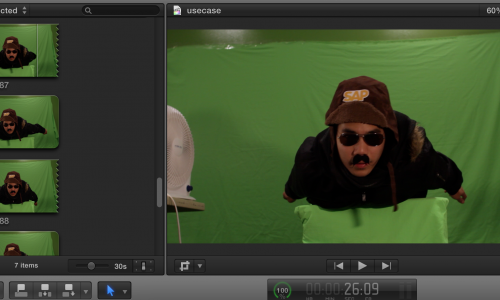
Someone once said that when you write about something, you should write about what you know. So when I was asked by one of the Peer Education Coordinators to write a career-related blog for their website, I felt compelled to write about the process of applying for graduate school, as I am currently applying for several schools myself. I plan to share general insights, advice, and some of my own personal experiences – good and bad – with the process. Being that it is November and many graduate program application deadlines are approaching with a speed and brutality that only an overworked, severely over-caffeinated, and sleep deprived student can appreciate, I feel that this is a good time to start. It is my hope that you, the readers, will be able to both relate to my experiences and hopefully take something useful away from both my successes and what I’m sure will be my many mistakes.
I picked this time of year to start talking about the application process for a very particular reason. There will be many of you readers who may be finding yourselves in the same place as me – madly scrambling to get application materials together for the rapidly approaching deadlines. Others of you may be in the position where you are starting to think about graduate school, but application deadlines will not be for another year. Ultimately, and I think most appropriately, now represents the best time to talk about what I consider to be the MOST IMPORTANT topic in this process – PLANNING and TIME MANAGEMENT. I felt now was the ideal time to post, as some informational tidbits I might impart may prove useful to both those of you applying to graduate programs now and those who are thinking about applying next year.
The great things about planning out your application process and managing your time accordingly are that they are things you can start doing as early or as late in the game as you like, and that doing so truly is a worthwhile investment in your own mental health! For those of you who are still a year away from applying, take it from me, START PLANNING NOW! The honest truth is that once your deadlines are 3-4 months away, taking on this process WILL be like taking on a part-time job! If you’re like me and have a job, 2 volunteer positions and plenty of coursework to keep you busy already, applying to 5+ programs might prove stressful to say the least. My best suggestion is that unless you are incredibly ahead of the game – unlike me – you will want to plan out your course schedule and other activities in a way to give yourself the extra time every week. By starting this early in the game you can effectively make your time commitments much smaller and more manageable. You can even do as little as taking an hour or two a week to browse prospective graduate school websites, to bounce your ideas off your advisors or relevant faculty members, or even to just to start actively nailing down what programs you’d like to apply for. Whatever the case, starting the process early can help make for a smooth application experience and will help you to spare yourself the experience of having your friends, family or professors discover a stressed out shell of your former self lying in the fetal position in a pile of your own application materials.
For those of you who only have a few short weeks left until your deadlines arrive, doing 4 simple things can help you to manage your time effectively:
-
Make lists,
-
Set deadlines
-
Manage your schedule
-
Re-evaluate and Repeat steps 1-4 (as needed)
At this stage of the game, you are going to have a LOT on your plate and many MANY things to get done. Making yourself a checklist will do a couple of things for you:
-
Help you remember what you have done and what you still have left to do, and
-
Help reduce that overwhelming feeling you get from having too much going on in your brain that makes you want to cry, faint, vomit, engage in primal screaming or any combination thereof or more.
Steps 2, 3 and 4 are the most important ones in my mind in that they help keep you on track and out of time commitment trouble. I know it may sound cliché to set deadlines for yourself, but without having deadlines to get certain specific checklist tasks done, it is so much easier to let tasks take much longer than they should. At this stage of the game, let’s face it, you’re not going to have much extra time to waste! Managing your schedule to allow you to meet your own deadlines will only make the process easier. Scheduling specific days and times, asking people in your life for tangible support, taking time off work, or if you’re like me, calling in ‘sick’ when you can’t find someone to cover you, are only a few of ways you can make time to get things done without having to deprive yourself of even more sleep. Finally, in this process, things aren’t always going to go according to plan. You’ll have unexpected time commitments popping up, unproductive days, your best friend’s birthday and subsequent hangover…whatever the case, re-evaluating your workload and time constraints and altering your action plan accordingly will help you to both get back on track and keep your missed deadline freakouts to a minimum.
You, the current and future applicants, are taking the next big step in your academic and professional careers. Applying to graduate school programs is an important part of taking that step, in that the quality of your applications will play a significant role in which programs you get accepted to. The more you put into your applications, the more you will get out of them. It is my hope that within this blog, and in those to come, you the readers will find some helpful nuggets that will help you to have a smooth and rewarding application experience. Until next time, enjoy the process and keep your heads above water!















